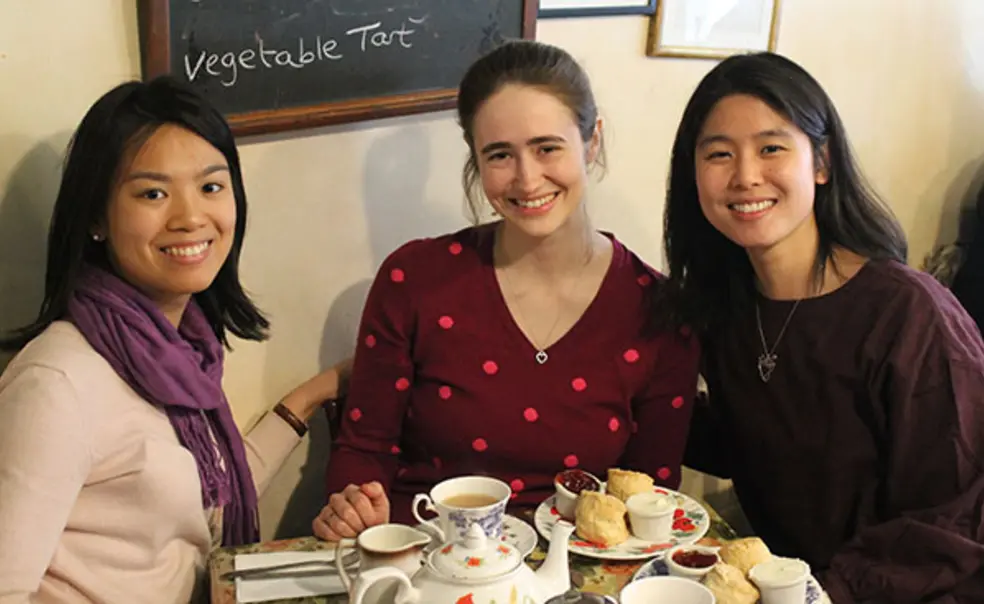Erica Cao ’13 Connects Songwriting With Service
One evening several years ago when Erica Cao ’13 was a medical student at Columbia, a colleague called to tell her that a teenager they had treated for a life-threatening lung disease had been readmitted to the ICU. After the call, Cao looked at a poem taped to her bedroom wall that the boy had written to give himself — and his medical team — hope.
Cao reached for her ukulele and began writing a song based on his poem. The lyrics poured out. Later, with med school friends on cello, guitar, and ukulele, and a nursing student who sang, they played the song in the boy’s hospital room with his family gathered around.
Afterward, “he said that music and poetry saved his life,” Cao said. “I think he meant that in the way that music kind of brings meaning” — and enables you to express yourself and your story during times of great uncertainty, like when you’re fighting a serious illness.
That experience, along with a series of collaborative songwriting workshops she had organized, affirmed her decision to take a break from medical school to start a nonprofit that brings together people from different backgrounds to write songs, and, in the process, build social connections. “I really saw how powerful these kinds of connections could be,” not only for the patient but also for the med students, said Cao, president and co-founder of Humans in Harmony.
Established in 2017 with co-founders including Elizabeth Butterworth ’12 and Jennifer Chew ’15, the New York-based Humans in Harmony has paired medical and high school students with children living in foster care, veterans, hospital patients, at-risk youth, and teens in detention centers for collaborative songwriting workshops. The vets, teens, or patients share their personal stories and experiences, and the students help put them to music.
Songs created in these sessions have covered topics from self-acceptance and the loss of a loved one to dealing with bullying and domestic violence.
Humans in Harmony stems from a Pace Center for Civic Engagement summer internship Cao held at a nonprofit in Boston, Genuine Voices, which taught music to teens in detention centers. Cao proposed a project pairing the teens with pediatric cancer patients to write songs, which, she said, forced the teens to “think outside of themselves.”
Butterworth, who by day is an adjunct lecturer in Classics and coordinator of an honors program in Classics at Hunter College, helped get Humans in Harmony off the ground by developing grant proposals and strategy for funding and partnerships. Today she serves as director of development. Chew, whose day job is marketing manager at Smartling, a translation services company, is director of communications. She created the website and manages outreach to, and recruitment of, participants and partner organizations.
Cao, Butterworth, and Chew are trying to scale up the organization’s impact and systematize it by recruiting young people with a passion for music and improving the lives of others for 8-week summer internships at social service organizations in New York — such as Sheltering Arms Children and Family Services, which works with homeless and at-risk youth — to work on collaborative songwriting projects with the people they serve. They aim to launch this music corps initiative this summer.
“We are really focusing on this idea of music coming together with service, leading to increasing civic engagement,” Cao said.
As Cao builds the organization, she’s also analyzing it. A Ph.D. student in Cambridge University’s Centre for Music and Science, she’s conducting field research by implementing and evaluating Humans in Harmony’s programing to learn how collaborative songwriting can bring people closer together.
Cao, who started piano lessons at age 9, said, “Music has always been that way that I have gotten to know people really well and connect.” Now, through her nonprofit, she wants to mobilize “the energy of young people who want to make a difference through music.”












No responses yet